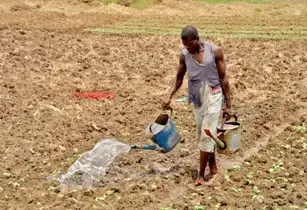The World Bank has granted US$103.4mn for Ghana to reverse land degradation and strengthen integrated natural resource management, across three million hectares of degraded landscapes
The cost of environmental degradation in Ghana due to unsustainable use of land for agriculture, forests, and mining stands at 2.8% of national GDP (2017). If the current natural resource extraction remains unchanged, Ghana will see its natural resource base destroyed over the long term.
The financing includes an IDA credit of US$75mn, and US$28.4mn in grants from the Global Environmental Facility, the Extractive Global Programmatic Support, and the Global Partnership for Sustainable and Resilient Landscapes (PROGREEN) multi-donor Trust Funds.
The Ghana Landscape Restoration and Small-Scale Mining project will focus on land-use planning for integrated landscape management, and promote sustainable mining by helping formalise artisanal and small-scale mining. It will engage communities of the Northern Savannah Zone and the cocoa forest landscape and support sustainable land, water, and forest management activities in the climate vulnerable target landscapes.
“The project will help boost post-COVID-19 economic recovery, create jobs and secure livelihoods in some of the poorest parts of Ghana, by focusing on agricultural productivity, ecosystems management and sustainable small-scale mining,” said World Bank country director, Pierre Laporte.
“The project aims to place landscapes and mining sector management on a path that would transition from degraded landscapes, poverty, and low productivity toward one of resilient landscapes that optimise the ecosystem functions for better livelihoods and more sustainable economic returns,” said World Bank practice manager, Environment, Natural Resources and Blue Economy, Sanjay Srivastava.
The project will enhance women’s role in local-level forest and landscape management activities, and create better income-generating opportunities, impacting more than 250,000 people in the process.
"This joint project aligns with the World Bank's Forest-Smart Mining Initiative and will promote forest-smart interventions in the artisanal and small-scale mining sector and strengthen regulatory compliance and sustainable mining practices," said World Bank acting practice manager, Energy and Extractives Global Practice, Zubin Bamji.





